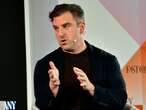Our healthcare system fails us when we need it most—during emergencies. Faced with crowded ERs or limited urgent care centers, patients are left without the immediate, expert care they deserve. This divide is particularly challenging for families and new parents, who often find themselves in ERs out of fear and a lack of better options. Parents with young children frequently visit emergency rooms, often driven by anxiety over symptoms that may not be life-threatening, but require immediate attention. They deserve more—a solution that combines expert care with the immediacy they need during stressful situations.
The future of healthcare must address these gaps, creating a more integrated and responsive model that better meets patient needs.
A patient-centered approach
Reflecting on my own healthcare journey, the need for innovation in this space couldn’t be clearer. When I contracted COVID-19, I had two vastly different experiences: one in the ER, where I endured a grueling nine-hour wait for a 30-minute monoclonal antibody infusion, and another at an urgent care, where the care was so underwhelming that I left to find another option. These experiences highlight a larger problem in healthcare today—a system that struggles to provide the right care in the right setting, leaving patients to navigate these challenges on their own.
To move forward, healthcare must embrace a more patient-centered approach. This involves rethinking traditional models and considering how we can better integrate care across different settings. For families and new parents, this could mean access to more immediate, expert care that doesn’t sacrifice quality for convenience.
When your child’s fever spikes at midnight—the stakes are high, and the stress is real. Data from the American Academy of Pediatrics indicates that children under 5 are disproportionately represented in ER visits, often for nonurgent conditions that could be better handled in a more appropriate setting. The solution lies in creating healthcare environments that are both accessible and equipped with the expertise needed to address urgent concerns without the long waits and chaotic environments that often characterize emergency rooms.
A sustainable healthcare system
Moreover, addressing our current system’s inefficiencies isn’t just about improving individual patient experiences—it’s about creating a more sustainable and effective healthcare system overall. Reducing unnecessary ER visits and providing more appropriate care options can ease the burden on hospital systems and lead to better outcomes across the board. This shift requires a commitment to flexibility and responsiveness, allowing healthcare providers to adapt to the real-time needs of patients to get them the care they deserve.
The lessons I’ve learned from my previous roles in luxury hospitality and other consumer-driven businesses are directly applicable here. In those industries, success hinges on understanding and anticipating customer needs, and healthcare should be no different. By listening to patients and providers, we can continually evolve our approach to care, ensuring that it remains both high-touch and high-quality. This is how we can begin to close the gap between the extremes of the current system and build a healthcare model that truly serves the needs of all patients.
In the end, transforming healthcare requires a fundamental shift in how we think about the patient experience. It’s not enough to simply offer more services or faster care; we need to rethink how care is delivered, ensuring that it is both expert and empathetic. This new standard of care—one that is patient-centered, flexible, and responsive—has the potential to not only improve individual outcomes but also to set a new benchmark for what healthcare can be. By focusing on the needs of patients as people, we can create a system that is not just more efficient, but more humane, especially for those who need it the most—our families.
Brad Olson is CEO of Sollis Health.










No comments